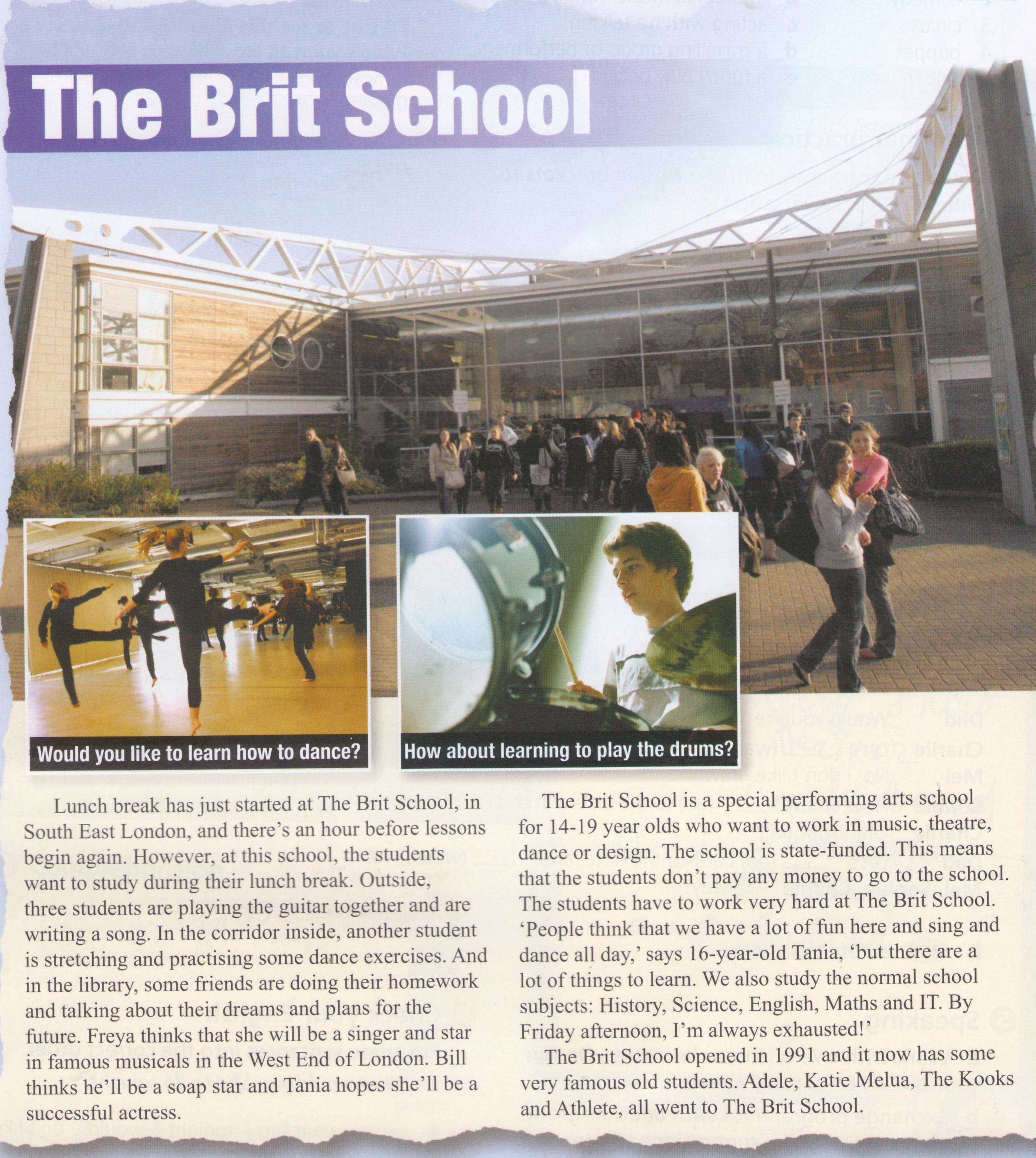- Преподавателю
- Иностранные языки
- Урок английского языка на тему Школы Англии (7 класс)
Урок английского языка на тему Школы Англии (7 класс)
| Раздел | Иностранные языки |
| Класс | 7 класс |
| Тип | Конспекты |
| Автор | Фатеева О.Л. |
| Дата | 12.04.2015 |
| Формат | docx |
| Изображения | Есть |









 Form 7
Form 7
The theme of the lesson: English schools
Цель урока: формирование речевой компетентности учащихся.
Задачи:
Обучающая
- обобщение материала по теме и формирование представления о типах английских школ;
- отработка интонации и произношения;
- развитие речевых навыков
- навыков аудирования
Развивающая
- развитие навыков групповой, фронтальной работы;
- формирование информационно - коммуникационной компетентности;
- развитие языковой догадки, мышления, воображения, умения
Воспитательная
- создание положительной мотивации к изучению иностранного языка;
- расширение интереса учащихся к предмету при помощи информационно - коммуникационных технологий;
- стимулирование учащихся к работе в группе;
- воспитание интереса к школьной жизни своих сверстников за рубежом.
-
Organizational moment.
Good morning, children! I'm glad to see you. How are you, today?
Now tell me please, what's the date today? What's the day today?- (Pupils' answers):
(Учащиеся делятся на группы)
We are going to continue our talk about English schools.
We'll speak about different types of English schools. You will know something interesting and new for you. I hope that our co -operation will be important for you and me.
-
Warm up
Флипчарт 1
Match the words: noun, verb, adjective
noun
verb
adjective
Topic
Computer
Discussion
Cloak-room
Subject
uniform
Start
Comprise
Last
Locate
Create
attend
Primary
Secondary
Famous
Widespread
Private
Compulsory
-
New theme
Video "English schools"
Флипчарт 2
-Now look at the blackboard and complete the diagram.
The diagram of the system of education in Great Britain
English schools
Private schools
State schools
Secondary schools
Junior schools
Infant school
Independent schools
Public schools
Modern schools
Grammar schools
Comprehensive schools
Speaking
When do children start going to school in Britain?
When do pupils finish primary school?
How many years do pupils study in secondary school?
When does compulsory education begin?
What are the types of secondary school in England?
What are the "core" subjects?
How long does primary education last?
When do lessons start?
-
5
-
11-12
-
5
-
5
-
Grammar, modern, comprehensive
-
English, Maths, Science
-
6
-
9.00
Флипчарт 3
Work in groups.
Task. True or false. Correct the false sentences.
-
In Great Britain children start going to school when they are seven. (five)
-
Compulsory education begins at the age of 11. (5)
-
Primary education lasts for six years.
-
Boys and girls study at junior school for four years.
-
English, Maths and Science are called "core" subjects.
-
Boys and girls study together at private schools. (do not study)
-
Compulsory education begins at the age of five when children go to primary school.
Reading

Флипчарт 4
Answer the questions
-
Where is The Brit School?
-
How long is the lunch bread?
-
How old are the students at the school?
-
What subjects do students study?
-
When did the school open?
-
In South East London
-
An hour
-
14-19
-
History, Science, English, Maths, IT
-
In 1991
Listening
Tim wants to go to the Brit school. Listen to his interview.
Listen and complete the dialogue.
Teacher So, Tim, why do you want to come to this school?
Tim Well, I really love __________ and I think that this school is a great place to learn. I want to study ________ here.
Teacher Hmm. I see. What job do you think you'll have in the future?
Tim I hope I'll________ a professional singer. I think I'll be in a band and we'll_______ and _______ our own songs.
Teacher Do you ____________ your music at home ?
Tim Yes, I do. I sing every day, even in the holidays. And I'm also ________ to play the guitar.
Teacher Who is your favourite singer?
Tim I really love Justin Timberlake. I think he's got an amazing voice and he's a great______________too.
Teacher So, Tim, why do you want to come to this school?
Tim Well, I really love singing and I think that this school is a great place to learn. I want to study misic here.
Teacher Hmm. I see. What job do you think you'll have in the future?
Tim I hope I'll be a professional singer. I think I'll be in a band and we'll write and perform our own songs.
Teacher Do you practise your music at home ?
Tim Yes, I do. I sing every day, even in the holidays. And I'm also learning to play the guitar.
Teacher Who is your favourite singer?
Tim I really love Justin Timberlake. I think he's got an amazing voice and he's a great dancer too.
Students answer the questions:
What does he want to study at the Brit School? (music)
Why? (He'll be in a band and they'll write and perform songs)
Project
Students work in groups and make project
Group #1 "Eton School"
Group # 2 "Harrow School"
Group # 3 "Sherborne School for Girls"
-
Evaluation
(каждый ученик получает лист оценивания)
Лист оценивания
ФИ члена группы
Оценка
Критерии оценивания
«5» - выполнил все задания правильно, активно вносил свой вклад в групповое обсуждение, в работу группы;
«4» - выполнил все задания, иногда ошибался, участвовал в групповых обсуждениях;
«3» - часто ошибался, выполнил правильно только половину заданий, иногда вносил свой вклад в работу группы;
«2» - почти ничего не смог выполнить правильно, предпочитал не участвовать;
-
Reflection
-
Home task
Project "School of the future"
Appendix 1
Eton
Do you know Eton? It's the most famous public school. A year at Eton costs 34000 $. A lot of important people used to be students there. It's an all boys school. Prince William, the Queen's grandson went to Eton, too. But if you take a special exam and if your results are very good, you get a scholarship. In this case you don't have to pay to go there.
Eton is one of the oldest and best-known public schools for boys, at the town of Eton on the river Thames. Its students are largely from aristocratic and upper - class families. The school was founded in 1440. Boys usually stay at Eton for five years (between the ages of 13 and 18). Eton provides fine teaching facilities in science, in language, computing and design. There are two major libraries, College Library and School Library, but also numerous subject libraries.
Sport plays are very important part in the life of Eton. The principal games are rugby, football, cricket and rowing. Athletics, swimming, golf, squash, tennis, fencing, judo, and Karate are all very popular.
The boys are offered a very wide range of opportunities for spare time activities: art, sculpture, woodwork, metalwork and silver work. Besides almost any musical instrument can be learnt. There are also fifty societies run by the boys themselves.
Many famous people of Britain studies at Eton, among them twenty of Britain's Prime Ministers. There were future writers among the students of Eton from Thomas Gray, Percy Bysshe Shelley and Henry Fielding to Aldus Huxley and George Orwell.
Appendix 2
Harrow school
Harrow school is an English independent school for boys situated in the town of Harrow, in north-west London. Harrow has educated boys since 1243 but was officially founded by John Lyon under a Royal Charter of Elizabeth I in 1572.
The school as enrollment of approximately 800 boys spread across twelve boarding houses, all of whom board full time.
Boys at Harrow have two uniforms.
Everyday dress, worn to most lessons, consists of a white shirt, black silk tie, grey trousers, black shoes, blue jumper, a dark blue woolen uniform jacket, the school blue and white scarf on cold days and, notably, a boater style straw hat with a dark blue band.
An alternative uniform, Sunday dress, worn every Sunday and for public engagements, consists of a morning suit; a black tailcoat, pinstriped trousers, a black waistcoat, black tie, braces and a white shirt.
Harrow School has 24 tennis court which include acrylic, hard and synthetic lawn which belong to Harrow Lawn Tennis Club.
Harrow is not built on a campus: it is fully integrated into surrounding area; there are private houses and shops on the hill, and the main road through the hill is a normal public highway and indeed a bus route.
The school is made up of some 400 acres of playing fields, tennis courts, golf course, woodland and gardens.
Appendix 3
Sherborne School for Girls
Sherborne School for Girls, informally known as Sherborne Girls, is an independent day and boarding school for girls. Located in Sherborne, North Dorset, England. The school was founded in 1899 by Mr. and Mrs. Kenelm Wingfield Digby. There are currently 440 pupils attending Sherborne Girls, with over 90 percent of students living on campus and residing in the seven boarding houses.
All girls are required to take English, Maths, a Science subject, Religion and a Foreign Language. Both schools also collaborate in various school activities and functions such as theatre productions, joint societies and social activities. The campus includes Oxley Sports centre, which opened in 2007 with a six lane swimming pool, fully equipped fitness suite, squash courts, badminton courts, a floodlit Astro Turf hockey pitch, climbing wall, grass pitches and dance studio.
Sherborne Girls is a mainly boarding school for girls aged between 11 and 18. It has a fine academic reputation of which it is justly proud, and has been in the forefront of girls' education in Britain for over 100 years. The school is situated in beautiful grounds on the edge of the attractive Dorset town of Sherborne which enjoys a temperate climate. There are good road and rail links including direct rail links with London and Heathrow airport. The school provides a rich environment for the development of well-educated, confident and caring young women who are committed to making significant and positive contributions to the world in which they live. The school honours the timeless traditions of honesty, and integrity together with the vital characteristics of compassion, tolerance, and mutual respect.


